'Vale of Leven Hospital GP Out-of-hours Services' debatepublished at 17:16 BST 30 May 2017
Labour MSP Jackie Baillie will now lead a member's debate entitled 'Vale of Leven Hospital GP Out-of-hours Services'.
MSPs take evidence on puppy dog tail shortening
Details of the new social security payments to be delivered by the Scottish government are outlined to parliament by Social Security Secretary Angela Constance
Higher Education Minister Shirley-Anne Somerville gives a ministerial statement on widening access to higher education
The Equalities and Human Rights Committee leads a debate on destitution, asylum and insecure immigration status in Scotland
Labour MSP Jackie Baillie leads this evenings member's debate on the Vale of Leven Hospital GP out-of-hours service
Craig Hutchison and Colin Bell
Labour MSP Jackie Baillie will now lead a member's debate entitled 'Vale of Leven Hospital GP Out-of-hours Services'.
The motion on behalf of the Equalities and Human Rights Committee is agreed to unanimously.
 Image source, Scottish Parliament
Image source, Scottish Parliament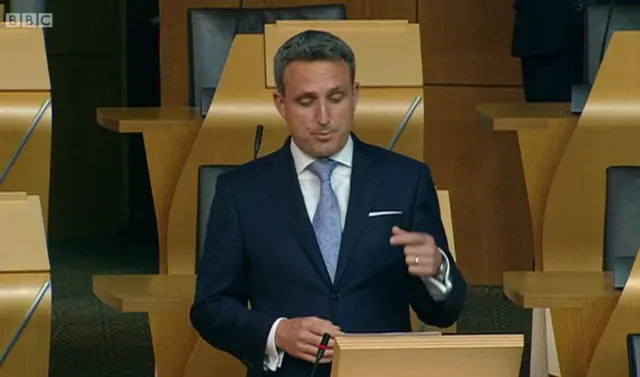 Image source, bbc
Image source, bbcEqualities and Human Rights Committee convener Alex Cole-Hamilton
The Equalities and Human Rights Committee convener says people arriving in Northern Ireland do not have to travel to Croydon to make a claim and it is wrong that destitute asylum seekers in Scotland have to.
Mr Cole-Hamilton says 31 councils have taken part in the Syrian Vulnerable Persons Resettlement Programme.
The Lib Dem MSP says this contradicts the UK government's excuse on the Dubs amendment that local authorities could not take asylum seekers.
He says there is concern a two tier system is being created affecting integration.
Mr Cole-Hamilton says young people, particularly victims of human trafficking, should be given the same status as in care children.
Equalities and Human Rights Committee deputy convener Alex Cole-Hamilton says "a co-ordinated national approach is required."
Mr Cole-Hamilton says he would like to see asylum seekers being allowed to work in the UK as the Irish Supreme Court has ruled they can in Ireland.
He says newly arrived asylum seekers are vulnerable to destitution and that the committee heard that it is built into the asylum process.
SNP MSP Gail Ross intervenes to ask if he thinks it is disappointing that no member of the UK government could come to give evidence to the committee.
Mr Cole-Hamilton says "it is" disappointing.
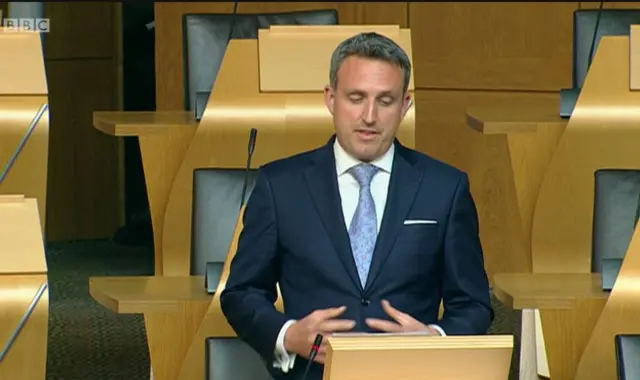 Image source, bbc
Image source, bbcEqualities and Human Rights Committee deputy convener Alex Cole-Hamilton
The Equalities and Human Rights Committee deputy convener Alex Cole-Hamilton says the committee worked very well examining the evidence.
Mr Cole-Hamilton says it talked to those on the front-line and to those who needed support.
The Lib Dem MSP says this is a humanitarian issue which has led to heart rending stories totday.
He says destitute people have no access to money in the UK, one of the world's richest countries in the world.
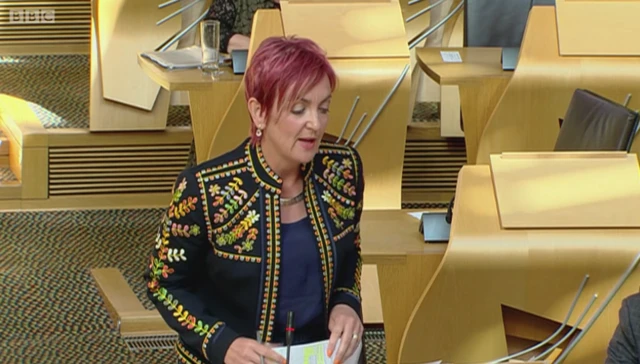
Ms Constance says the situation will only get worse when support is cut further still.
The equalities secretary says the government will look at all the recommendations sympathetically with a can-do approach.
SNP MSP Christina McKelvie intervenes to say today the Irish Supreme Court ruled that it is illegal to refuse to let asylum seekers work.
Ms Constance says "hear, hear to the Irish Supreme Court".
She says asylum seekers want to make a contribution and they shouldn't be stopped from doing so.
Ms Constance highlights the UK government's u-turn on the Dubs amendment and says that 10,000 children have gone missing over the past 10 years.
Social Security Secretary Angela Constance says the Scottish government will continue to do what it can to support those facing destitution.
Ms Constance says she heard the glib remark that if the Scottish government wishes to mitigate it can.
She says it does but the Scottish government wishes to prevent destitution in the first place and have a system where asylum seekers do not end up penniless on the street.
The minister says people pay their taxes to the UK government and there is a right to expect that fairness, dignity and respect will be at the centre of the system, as well as prevention.
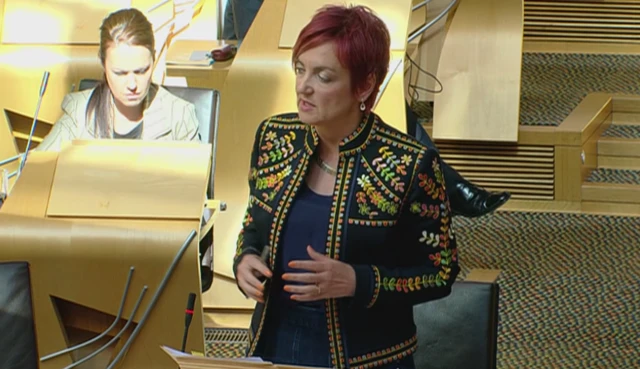
Equalities Secretary Angela Constance says she agrees that, first and foremost, this is a humanitarian issue.
Ms Constance says she also agrees that destitution is built into the asylum and immigration system.
The equalities secretary says Tory MSP Jeremy Balfour said we can't take a simplistic approach and she agrees because "the asylum system needs wholesale change."
She says it cannot always be the Scottish government that are doing the chasing for replies.
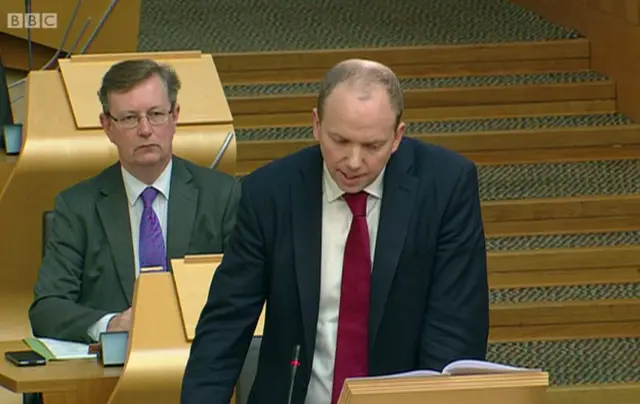 Image source, bbc
Image source, bbcConservative MSP Donald Cameron
Conservative MSP Donald Cameron welcomes the fact his colleague Annie Wells has written to the UK government to ask if claims could be made in Scotland.
Mr Cameron says it is clear this is an uncertain world and the UK and Scotland will continue to be a beacon of hope.
He calls for a suitable strategy to deal with mental and public health.
Mr Cameron says the proposal for an independent advocacy is to be welcomed.
The Tory MSP says some people who come to the UK come with disease which causes risks to that individual.
He says destitution has an impact on mental health.
Mr Cameron says if the Scottish government takes forward the anti destitution strategy then the stigma attached to diseases should be looked at.
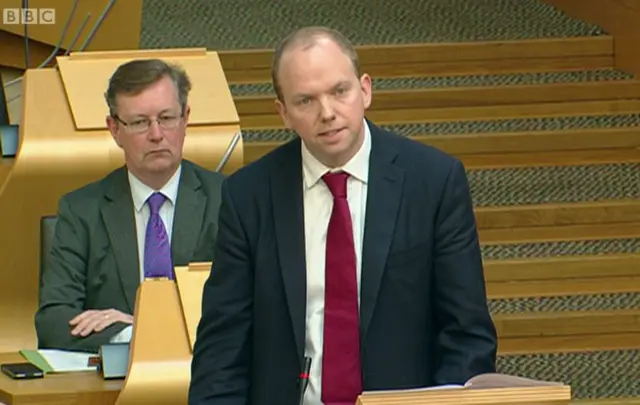 Image source, bbc
Image source, bbcConservative MSP Donald Cameron
Conservative MSP Donald Cameron says there is a shared commitment to support the most vulnerable.
Mr Cameron says his party will back the committee's motion at decision time.
He says it is quite right to think of people not statistics.
Mr Cameron says the proposal for a new advocacy service is close to his heart, as he represented asylum seekers in the past.
The Tory MSP says the rule and regulations are fairly formidable and difficult to navigate.
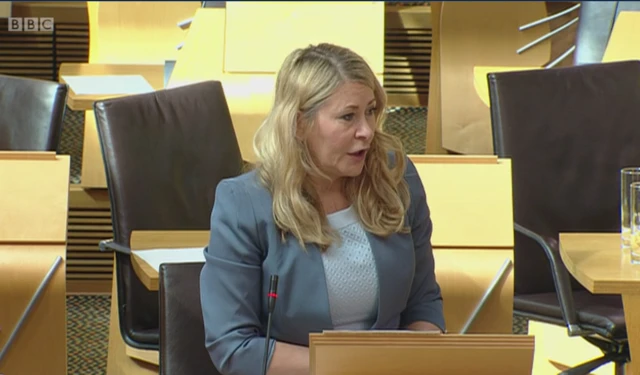
Ms McNeill says the right to make an application in Scotland is important as is the right to take up paid or unpaid work.
The Labour MSP says "we have a poor record in the way that we detain people".
She says she has written to Secretary of State for Scotland David Mundell about the conditions that people who are detained have to live in and she is awaiting a reply.
Labour MSP Pauline McNeill when a person is destitute they are much harder to find and they are at significant risk of exploitation.
Ms McNeill says there is a moral obligation to young vulnerable women who arrive here and go into a twighlight world.
She asks how do they find the funds to travel to Croydon or even find Croydon.
The Labour MSP says: "Registering in Scotland is a basic human requirement."
Ms McNeill says Britain can take many more child refugees.
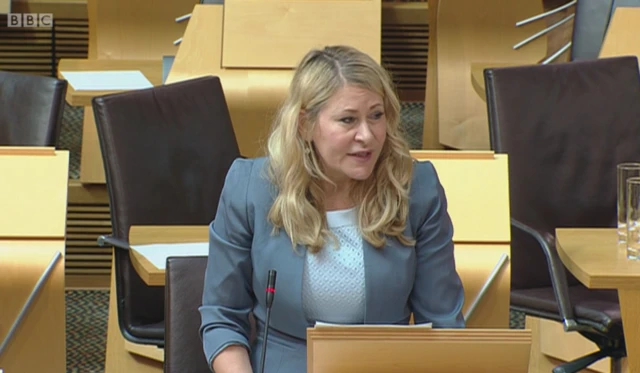
Labour MSP Pauline McNeill says she wholeheartedly welcomes the committee's report and that this will make a significant contribution to the work of the parliament.
Ms McNeill says the report is timely and there are many reasons that people flee their own country.
The Labour MSP says there must be a lot of darkness in a person's life if they are prepared to risk it to get to another country.
She says the system lacks a human approach, "it lacks humanity."
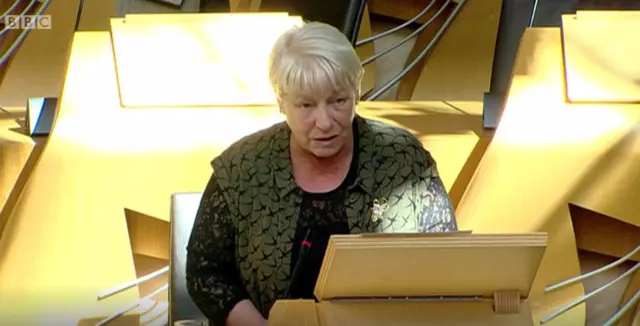 Image source, bbc
Image source, bbcSNP MSP Sandra White
SNP MSP Sandra White says she cannot take the hypocrisy from the Tory side of the chamber.
Ms White says the UK government drove around with a white van telling refugees to go home.
The SNP MSP says the committee's report is a fantastic report and this debate has been excellent apart from the Tories.
She says she welcomes the recommendation that people should not have to go down to Croydon and Liverpool.
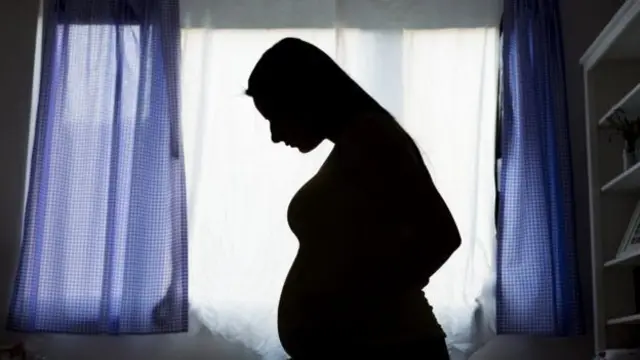 Image source, THINKSTOCK
Image source, THINKSTOCKAfter fleeing persecution in her homeland, Noreen's claim for asylum in the UK was initially refused.
Alone and with no right to work or receive government support, she told BBC Scotland enduring her pregnancy was "a living nightmare".
"I was so down that when I was seven months pregnant I told the doctor I didn't want the baby - but it was already too late."
"I was crying saying, 'I am so hungry, I don't even have any food'," she said.
Noreen said she did not receive government support until she was nine months pregnant.
Until then, she was forced to rely on charities and friends to survive.
But Noreen revealed that before her pregnancy, the asylum process had already driven her into a severe depression.
"I was admitted to hospital twice, after trying to cut my veins," she told BBC Scotland.
"I didn't want to live - there was no hope for me," she added.
Today, Noreen has been granted refugee status and lives with her two children in Glasgow.
Names have been changed.
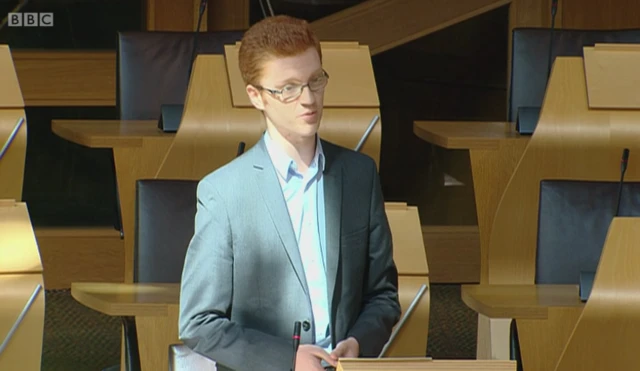
Green MSP Ross Greer says the Westminster government make it as difficult as possible to gain asylum here.
Mr Greer says: "These are desperate people asking for nothing more than safety and security."
He says the asylum and immigration policy is heartless and immoral.
The Green MSP asks what kind of society can tolerate this type of treatment of people and says there are things the Scottish government can take a lead on now.
Asylum seeker Mehdi: 'I just want to be somewhere safe'
The Equalities and Human Rights Committee said "destitution" is built into the process.
MSPs said that, too often, vulnerable people fell victim to homelessness, ill health and misery.
The committee called for a range of measures to tackle the problem.
But Conservative members of the committee refused to back the full report saying it was "politicised".
The committee investigated asylum and destitution, where people are left without adequate accommodation or the ability to meet essential living needs.
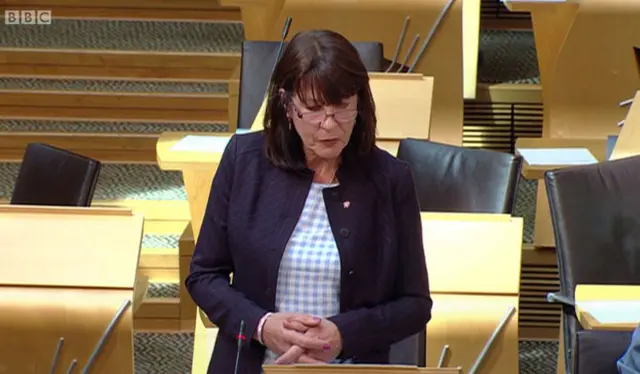 Image source, bbc
Image source, bbcLabour MSP Mary Fee
Labour MSP Mary Fee says individuals who have fled from conflict and human rights abuse.
Ms Fee says the current immigration system fails to treat people with compassion or even treat them as human beings.
She says the system increases the chances of asylum seekers becoming destitute.
The Labour MSP calls for the Scottish government, local authorities and the third sector to work together to tackle destitution.
She says the Conservative defence of the current UK immigration system is unsustainable.
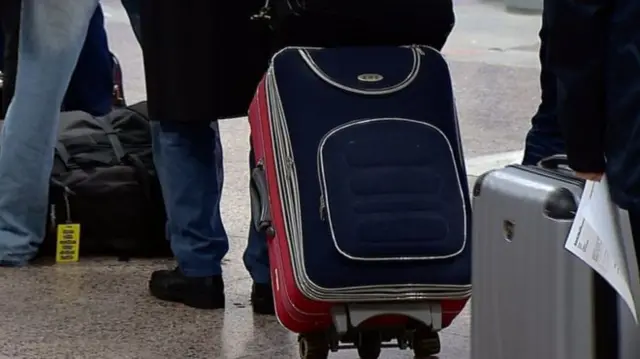 Image source, bbc
Image source, bbcHundreds more migrants are being left destitute in Scotland, according to the British Red Cross (BRC).
The charity said the number of destitute refugees and asylum seekers it had helped in Glasgow had increased from 326 in 2014 to 820 in 2016.
It accused the UK government of making the asylum process "increasingly difficult" - a claim the Home Office has disputed.
The Scottish government said the situation was "unacceptable".
According to the charity, the new figures to "some extent" reflected an overall increase in the number of people claiming protection in Scotland, including asylum seekers from Syria.